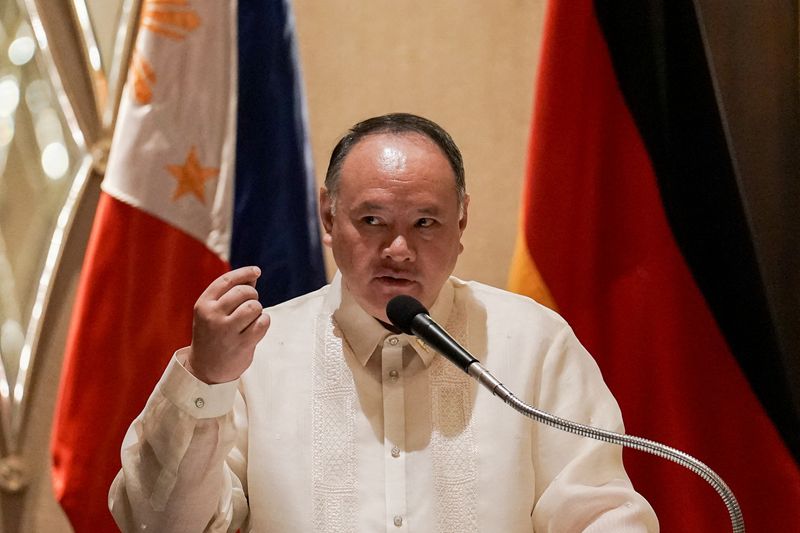The Philippines is skeptical of China’s intentions to negotiate a regional code of conduct in the South China Sea, according to Defence Minister Gilberto Teodoro. Despite President Ferdinand Marcos Jr approving discussions with China, Teodoro expressed doubts about Beijing’s sincerity. He stated that he does not see China’s commitment to negotiations at the moment. This comes in the context of escalating confrontations in the South China Sea, which sees $3 trillion worth of trade passing through annually.
Southeast Asian leaders have called for a swift agreement on a code of conduct for the South China Sea based on international law. The strategic waterway is the subject of territorial disputes involving China, Brunei, Indonesia, Malaysia, the Philippines, and Vietnam. The Philippines has raised concerns about Chinese vessels using aggressive tactics such as water cannon, collision, and ramming to interfere with resupply and patrol missions in disputed waters. A maritime code of conduct could help prevent such confrontations and avoid conflict in the region.
The code of conduct for the South China Sea has been a topic of discussion for years, but progress has been slow. Talks led by the Association of Southeast Asian Nations (ASEAN) have faced challenges in reaching consensus and agreement among the countries involved. The aim of the code is to establish guidelines and rules for behavior in the region, promoting peaceful coexistence and preventing incidents that could lead to conflict. The recent calls for swift agreement reflect the urgency of addressing tensions in the South China Sea.
Despite the challenges and doubts about China’s intentions, the Philippines remains open to continuing discussions on the code of conduct. The country acknowledges the importance of addressing territorial disputes and ensuring stability in the region. It is crucial for all parties involved to engage in diplomatic negotiations and abide by international law to prevent further escalation of tensions. Involving ASEAN in the process can provide a platform for dialogue and cooperation among the countries, facilitating progress towards a mutually beneficial solution.
The uncertain and complex situation in the South China Sea underscores the need for a comprehensive and effective code of conduct to regulate behavior and prevent conflicts. Diplomatic efforts and negotiations play a crucial role in resolving disputes and promoting stability in the region. The Philippines’ skepticism towards China’s intentions highlights the challenges of reaching consensus among the countries involved. However, with continued dialogue and cooperation, there is hope for progress towards a code of conduct that can address the security concerns and promote peace in the South China Sea.
In conclusion, the Philippines’ doubts about China’s sincerity in negotiating a code of conduct in the South China Sea reflect the broader challenges facing the region. Despite the complexities and tensions involved, it is essential for all parties to engage in diplomatic dialogue and abide by international law to prevent further escalation. The recent calls for swift agreement on a maritime code of conduct signal the urgency of addressing territorial disputes and promoting stability in the strategic waterway. With continued efforts and cooperation, there is potential for progress towards a framework that can help prevent conflicts and ensure peaceful coexistence in the South China Sea.












